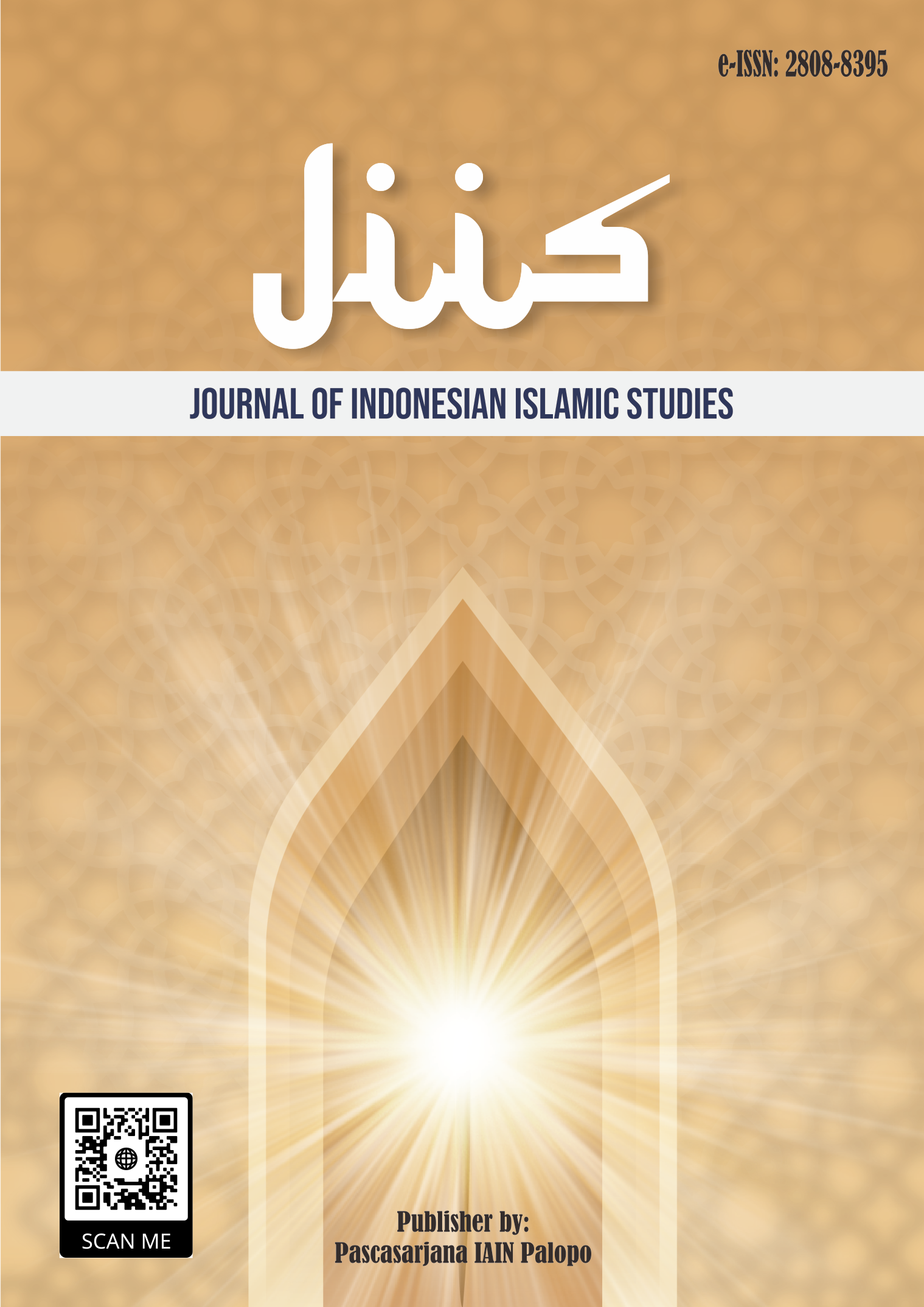Philosophical Approaches in Islamic Studies
DOI:
https://doi.org/10.24256/jiis.v3i2.4937Keywords:
philosophical approach, Islamic studies.Abstract
Philosophy and Religion, two different things but not necessarily contradictory. One of these efforts is to study Islam with a philosophical approach. Islam is required to be able to contribute to solving problems. Understanding Islam through a philosophical approach is intended to give meaning to something encountered, capture the wisdom, essence or essence contained in Islamic teachings so that in doing acts of worship do not feel empty, spiritual dryness and boredom in carrying out this approach views religious problems from a philosophical perspective and tries to offer solutions and solutions to problems with a critical-analytical method. The philosophical approach in the study of religion seeks to find explanations of the concepts of religious teachings by examining and finding a system of reason that humans can understand.
References
Al-Syaibani, O. M. (1979). Philosophy of Islamic Education. Hoboken, NJ: JA Macfadden-Bartell Book.
Al-Syaibani, O. M. at-T. (1979). Philosophy of Islamic Education. Jakarta: Bulan Bintang.
Ahmad Hidayat, A. (2006). Philosophy of Language: Revealing the Nature of Language, Meaning, and Signs. Bandung: Remaja Rosdakarya.
Connolly, P. (2012). Various Approaches to the Study of Religion. Yogyakarta: Lkis.
Faiz, F. (2007). Qur'anic Hermeneutics. Yogyakarta: Qalam.
Hadiwijoyo, H. (2001). Summary of the History of Western Philosophy. Yogyakarta: Kanisius.
TD Science. (2007). Philosophy of Science. Yogyakarta: Liberty.
Junaidi, A. B. (2009). The Search for the Meaning of Truth: Charles Sanders Pierce's Perspective in Islam in Various Contemporary Readings. Yogyakarta: Pustaka Pelajar.
Kasmadi, H. (1990). Philosophy of Science. Semarang: IKIP Semarang Press.
Madjid, N. (1994). Islamic Intellectual Treasures. Jakarta: Bulan Bintang.
Nata, A. (1997). Philosophy of Islamic Education 1. Jakarta: Logos Discourse of Science.
Nata, A. (2009). Methodology of Islamic Studies. Jakarta: Rajawali Pres.
Nata, A. (2010). Methodology of Islamic Studies (2nd ed.). Jakarta: Rajawali Pres.
Nata, A. (2013). Methodology of Islamic Studies (21st ed.). Jakarta: Rajawali Grafindo Persada.
Nasution, H. (1999). Philosophy of Religion. Jakarta: Bulan Bintang.
Poerwadarminta, J. S. (1991). General Dictionary of the Indonesian Language. Jakarta: Balai Pustaka.
Ramadhan, S., et al. (2017). Approaches in Islamic Studies (1st ed.). Yogyakarta: Masters Program/S2 FITK UIN Sunan Kalijaga Yogyakarta.
Sahrodi, J. (2008). Methodology of Islamic Studies. Bandung: Pustaka Setia.
Solihin. (2008). The Science of Sufism. Bandung: Pustaka Setia.
Sumaryono, E. (1999). Hermeneutics: A Philosophical Method. Yogyakarta: Kanisius.
Widagdho, D. (2005). Basic Cultural Sciences, Basic Natural Sciences, and Basic Social Sciences. Semarang: Anugerah Ilmu.
Yusuf, K. M. (2012). Al-Qur'an Studies. Jakarta: Amzah.
Downloads
Published
How to Cite
Issue
Section
Citation Check
License
Copyright (c) 2024 Ahmad Noviansah

This work is licensed under a Creative Commons Attribution 4.0 International License.
Authors who publish with the Journal of Indonesian Islamic Studies agree to the following terms:
- Authors have retained full articles copyright and grant the Journal of Indonesian Islamic Studies right of first publication with the work simultaneously licensed under Creative Commons Attribution License (CC BY 4.0) that allows others to share the work with an acknowledgement of the work's authorship and initial publication in this journal.
- Authors can enter into separate, additional contractual arrangements for the non-exclusive distribution of the Journal of Indonesian Islamic Studies published version of the work (e.g., post it to an institutional repository or edit it in a book), with an acknowledgment of initial publication in this journal.
- Authors are permitted and encouraged to post their work online (e.g., in institutional repositories or on their website) before and during the submission process, as it can lead to productive exchanges, as well as earlier and greater citation of published work (see also deposit policy and archiving on page journal).









